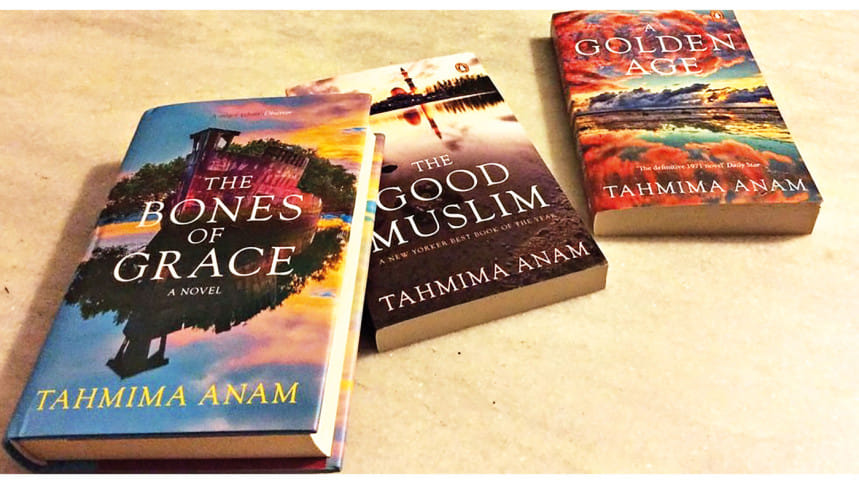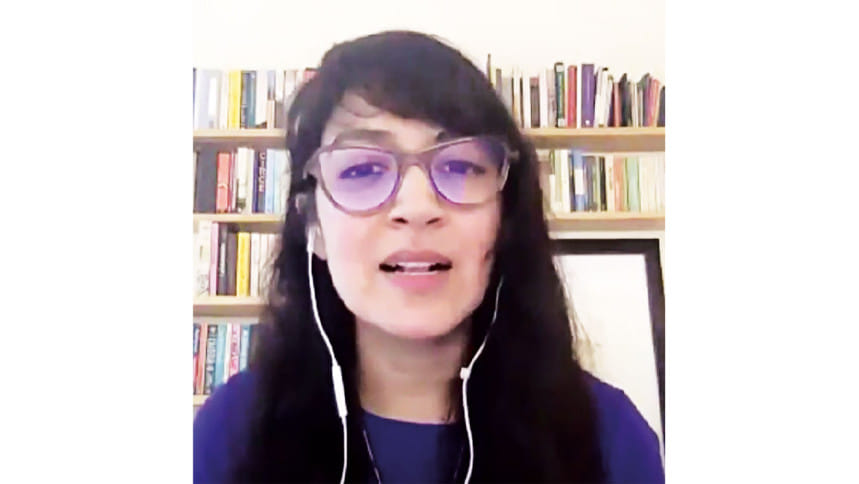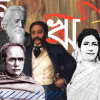A Transgenerational Quest for Identity in Tahmima Anam’s Bengal Trilogy

Tahmima Anam, the Bangladesh-born British writer, is known at home and abroad for her spontaneous and vivid writing style. She is widely distinguished as a novelist and columnist with a profound awareness of her native and international culture. Although Anam herself said that she has a complicated relationship with her roots, it is Bangladesh that she seeks to explore in most of her fictional works. Some common themes in Tahmima Anam's writing are the complexities of family relationships, the history of 1971 liberation war of Bangladesh, generational trauma associated with the neoliberal and cultural transitions, cultural assimilation followed by diasporic experiences and the like.
Anam is best known for her Bengal trilogy - the sequels of familial stories in the three novels - A Golden Age (2007), The Good Muslim (2011) and The Bones of Grace (2016). In her trilogy, Anam upholds the issues of family history with a special concentration on the transgenerational quest for identity. The trilogy tells the story of three generations of women during and after the 1971 liberation war of Bangladesh. The state of shared emotional space of the generations can be termed as what transgenerational trauma theorists Tihamer Bako and Katalin Zana call as "transgenerational atmosphere," the unconscious way of preserving and transmitting the familial memories when there is no available narrative to process the traumatic event. Here, the collective trauma of the liberation war is passed down from one generation to another and affects the family members on individual level as well.
But she recognizes the wound in his history, the irreparable wound because she has one too. His wound is her wound. Knowing this, she finds she can no longer wish him different.
Anam's first novel A Golden Age, is about a female freedom fighter Rehana Haque's "herstory" within the context of the liberation war of Bangladesh. The novel is partly autobiographical because it is inspired by Anam's grandmother. In the novel, Rehana is the first generation of the Haque family to actively witness the atrocities of the war. Rehana is portrayed as a concerned single mother who tries to prevent her children Maya and Sohail from joining the war, but soon she is bound to let them go for the national call of duty. Rehana's transformation from merely a caring, protective mother to an active participant in the war surprises the readers. Rehana is grateful that her next generation is alive, "This war that has taken so many sons has spared mine. This age that has burned so many daughters has not burned mine." Rehana attempts to negotiate her dual roles as a loving mother and a freedom fighter, exhibiting the fluidity of her identity that also inspires her next generations.
The second novel The Good Muslim portrays the second generation - the two siblings Maya and Sohail who attempt to accommodate themselves in the post-liberation war interregnum. Maya, like her mother Rehana, works as a volunteer at the refugee camp with the "birangonas" (the raped women in the war). She returns to her home in Dhaka only to find her brother Sohail as a completely transformed person - a religious fanatic. While Sohail and Maya respectively represent religious fundamentalism and liberalism, they struggle to make their moral choices in the aftermath of the war. The central conflict in the novel is that different ideological positions bring discontentment and hostility in brother-sister relationships. The siblings' identity crisis carries the "crypt" (the hibernating part of the inner self) of their parent Rehana as their life-worlds merge with each other. In other words, the siblings' life-choices bear the testimony of their parents' decisions.

The third novel Bones of Grace is about the third-generation story of Maya's daughter Zubaida Haque. It is an example of transgenerational search for motherline as well. Zubaida is torn between her root and route - she can neither break free, nor fully accept her grandparents' history. Although she has not seen any war from her firsthand experience, she sets for digging her familial past because she still must "cobble together an identity." Zubaida as the third- generation woman holds the proof that even though she is a present-time modern woman with a diasporic identity, the past of her ancestors is still present in her life in many forms.
Tahmima Anam's trilogy explore how transgenerational history shapes the identity of an individual but ultimately it is the choices they make that matter. She explores the fact that in order to put up with the route, one needs to check on his/her root every now and then. Anam's trilogy exhibits a brilliant example of transgenerational search for identity. The novels also address how the subsequent generations inherit their previous generation's identity informed by the transmission of history.
Jarin Tasneem Shoilee is a lecturer in English at Jashore University of Science and Technology, Jashore, Bangladesh.

 For all latest news, follow The Daily Star's Google News channel.
For all latest news, follow The Daily Star's Google News channel. 








Comments